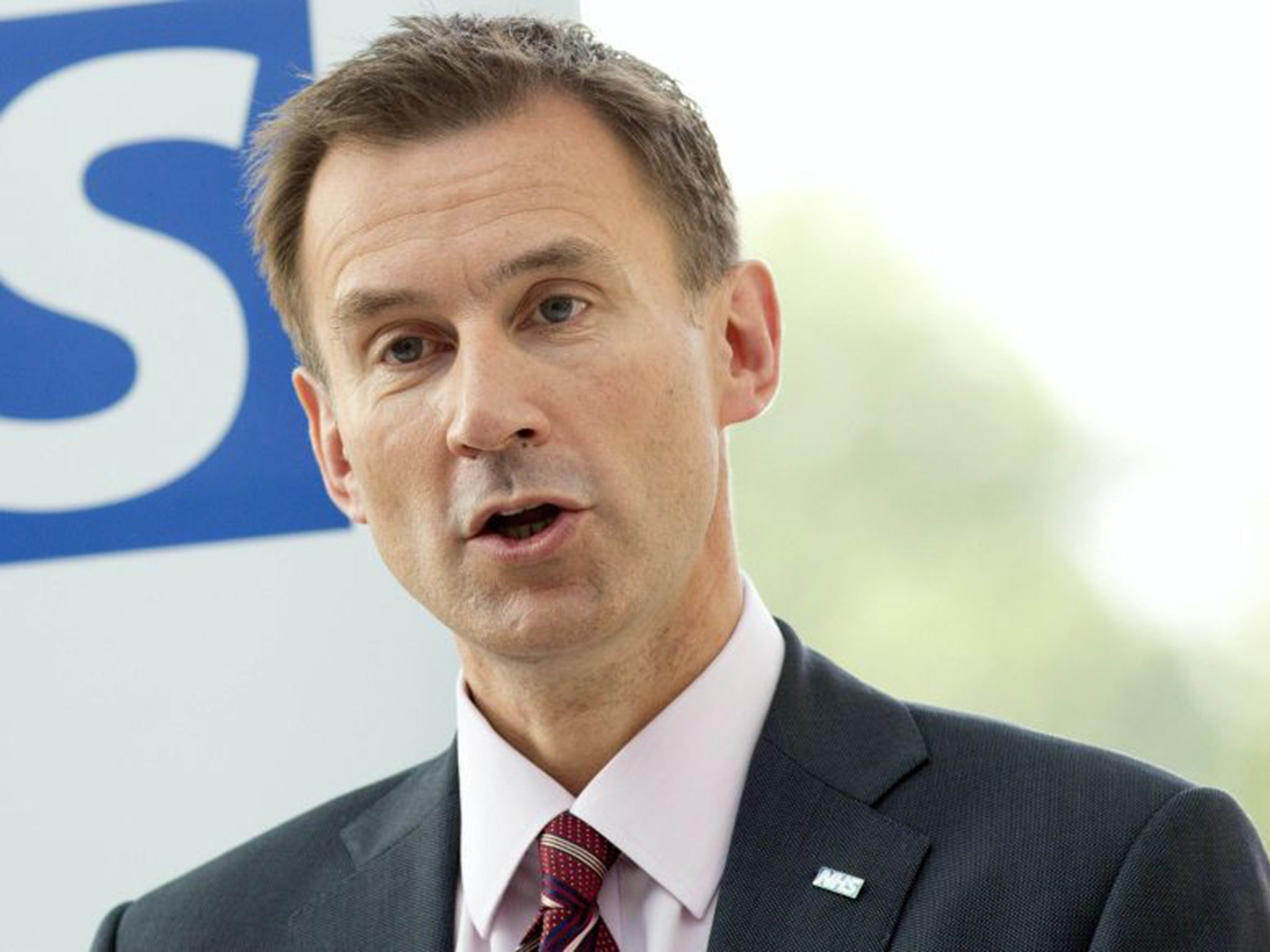Demands for inquiry into Whitehall's sexed-up letter from NHS boss warning of junior doctors strike
Lib Dems call for Cabinet Office to launch inquiry into The Independent's revelations that Department of Health officials asked NHS chief Sir Bruce Keogh to make his letter expressing concerns about strike action 'more hard-edged'

Your support helps us to tell the story
From reproductive rights to climate change to Big Tech, The Independent is on the ground when the story is developing. Whether it's investigating the financials of Elon Musk's pro-Trump PAC or producing our latest documentary, 'The A Word', which shines a light on the American women fighting for reproductive rights, we know how important it is to parse out the facts from the messaging.
At such a critical moment in US history, we need reporters on the ground. Your donation allows us to keep sending journalists to speak to both sides of the story.
The Independent is trusted by Americans across the entire political spectrum. And unlike many other quality news outlets, we choose not to lock Americans out of our reporting and analysis with paywalls. We believe quality journalism should be available to everyone, paid for by those who can afford it.
Your support makes all the difference.Ministers are facing demands for an inquiry into The Independent’s revelation that Department of Health staff strengthened and signed off a controversial letter by the NHS’s top “independent” medic that raised concerns about a strike by junior doctors.
Emails between senior Department of Health (DoH) staff and Professor Sir Bruce Keogh, the Medical Director of the non-partisan body NHS England, reveal that Health Secretary Jeremy Hunt was given approval on the text of the letter, which questioned whether striking junior doctors would be available to help in the event of a Paris-style terror attack.
It went through a number of revisions, seen by The Independent, to ensure concerns about the possible impact of a major incident during the strike were made as “hard-edged” as possible.
Tim Farron, the Liberal Democrat leader, said the letter was further proof that the Government had “poisoned the well of relations between junior doctors and NHS bosses”.
His party’s health spokesman and former social care minister, Norman Lamb, called for the Cabinet Secretary Sir Jeremy Heywood to set up an independent inquiry into the revelations, which he said had raised “serious concerns about potential political interference” by the Conservative Government.
Mr Farron has urged the Health Select Committee to call Mr Hunt and Sir Bruce to appear before them for questioning over the letter.
The Lib Dem leader said: "Tory ministers said when they set up NHS England it would be free of interference. These words have been shown to be meaningless. The Tories are guilty of blatant and utter hypocrisy over this sorry saga."
The letter by Sir Bruce was sent and made public in the week after the Paris terror attacks in November last year, causing a storm of protest from junior doctors.
Three thousand medics wrote to Sir Bruce accusing him of using fears of a terror attack for “political purposes”.
They said any insinuation that striking doctors would not come back to work in the event of an attack was “not in keeping with the inherent duty that junior doctors have to serve the public”.
The Independent's disclosure of how the final text was negotiated has caused an uproar among medics.
In one email, sent the day before the strike was declared, Sir Bruce was told by a DoH official that the risk of a “major incident” would be “pressed quite hard in the media once the strike is formally announced” and he was advised that “the more hard-edged you can be on this, the better”.
The emails also reveal that Mr Hunt agreed Sir Bruce would not be asked to speak to the media on the day the strike was declared “so long as” his letter reiterated his opposition to strike action, and was “clear” about the assurances the Department of Health wanted to hear from the BMA.
Mr Lamb, who worked under Mr Hunt in the Department of Health during the last Government, said: “In cases like this it is crucial to establish who had involvement in something that risks further damaging the Government’s relationship with junior doctors. This cannot be done by the Department and I am calling for Sir Jeremy Heywood to set up a suitable inquiry that will command respect to look into this.”
Responding to the release of the emails, Sir Bruce said that it was “entirely appropriate” that the NHS, the Department of Health and hospitals had “co-ordinated the operational response” to the strike threat.
A DoH spokesman insisted it was “completely right that the Department expressed a view on communication with the BMA”.
Talks between the Government and the British Medical Association (BMA) aimed at resolving a dispute over a new contract for junior doctors are resuming ahead of three spells of strike action, with the first strike scheduled for next Tuesday.
A Department of Health spokesman said: "Industrial action of the kind planned by the BMA creates a major safety risk for patients so it was absolutely right that ministers insisted on Sir Bruce Keogh giving his independent view of the NHS's capacity to respond in the event of a major terrorist incident."
Join our commenting forum
Join thought-provoking conversations, follow other Independent readers and see their replies
Comments